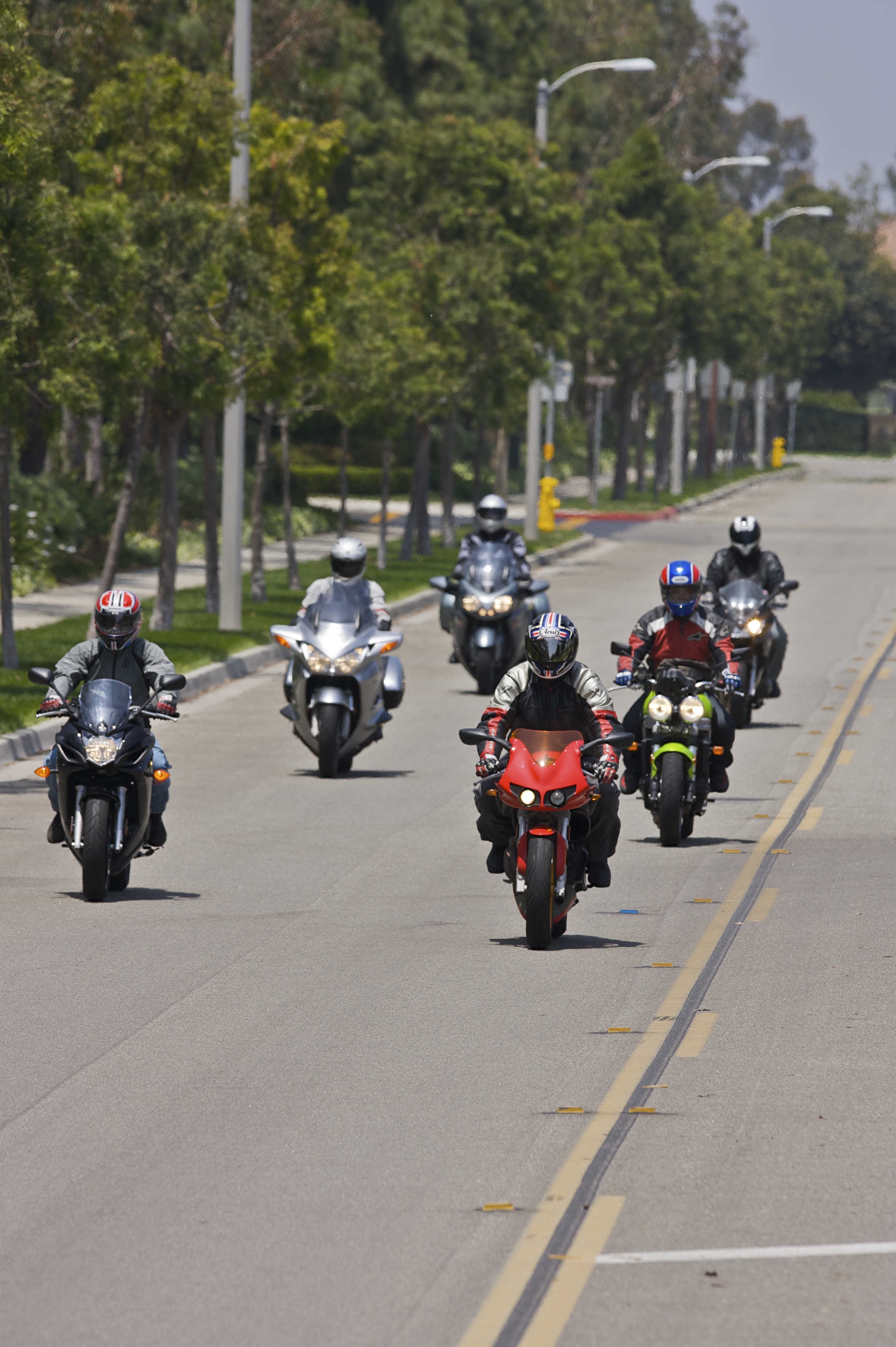Proper gear for motorcycle
 Required equipment |
Protective gear
Required equipment |
Protective gear
Required equipment
Headlight
- Must be a white light, bright enough to reveal a person or object 350 feet away
- Must be lighted at all times, day or night
- Modulating headlights are permitted for daylight operation only
Tail light
- Must be a red light visible for at least 500 feet
Brake light
- Must be constant red or amber light
- Must be visible for at least 300 feet
Muffler
- Must be properly functioning for constant operation
- Must be properly maintained to prevent excessive, unusual noise or annoying smoke
Horn
- Must be audible for at least 200 feet
Brake
- Cycle must have at least one brake capable of stopping within 50 feet at 20 mph under normal conditions
Rear view mirror
- Location of the mirror must show a rear view of the roadway for at least 200 feet
Handlebars
- May rise no more than 30 inches above the lowest point on the tip of the driver's seat when seat is occupied
- Improvised, defective or repaired handlebars are prohibited
Personal protective gear
Protective clothing
Motorcyclists are strongly urged to wear full protective gear, including:
- A full face helmet
- Leather or heavy duty long sleeve jacket
- Leather or heavy long pants
- Over-the-ankle boots
- Full fingered leather gloves
Eye protection
Motorcyclists are required to wear any of the following eye protection:
- A protective face shield attached to the helmet
- Glasses
- Goggles
If the windshield rises 15 or more inches above the handlebars, eye protection is not required but is strongly suggested.
Helmets
- Required for all operators and passengers under the age of 18
- Operators are subject to fines and demerit points for carrying passengers (on a motorcycle or in a sidecar) under the age of 18 who aren't wearing a properly fitted helmet
- Helmets are required for all operators with motorcycle instruction permits and their passengers
- Strongly recommended for use by all motorcycle and moped riders
- Must meet or exceed US DOT minimum standards